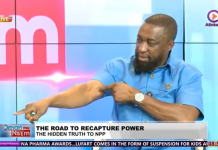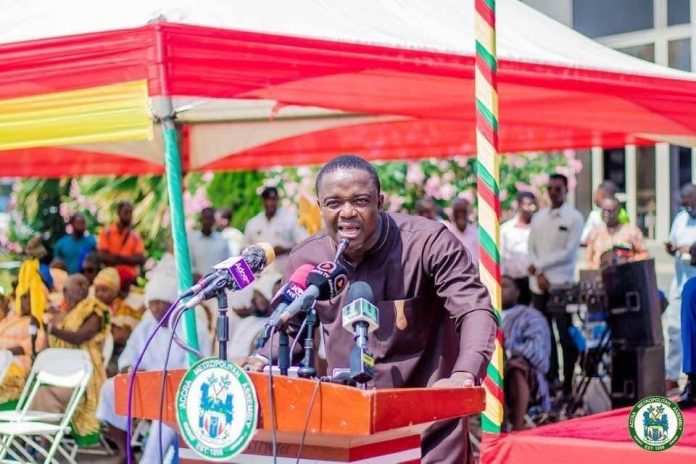Local governance remains the heartbeat of national development, ensuring that the aspirations of the people are translated into policies, programs, and tangible improvements in their lives. At the center of this governance structure stands the Assembly Member—a representative of the people, a voice of the grassroots, and a key decision-maker in shaping local and national policies.
The 1992 Constitution of Ghana and the Local Governance Act, 2016 (Act 936) vest significant powers in Assembly Members, making them indispensable to the democratic process. Yet, how well do we recognize and appreciate their role? How would our governance structure function without Assembly Members effectively executing their mandate?
THE CONSTITUTIONAL MANDATE OF ASSEMBLY MEMBERS
Assembly Members are more than just community leaders; they are the foundation of Ghana’s decentralized governance system. Article 240 of the 1992 Constitution explicitly provides for a decentralized local government system, ensuring that power is devolved to the local level, where the people can participate in decision-making.
Read Also: NALAG: MMDCE nominations lack gender diversity
Under Article 242 of the Constitution and Section 5 of the Local Governance Act, 2016 (Act 936), the composition of the Metropolitan, Municipal, and District Assemblies (MMDAs) includes:
• Elected Assembly Members
• Government Appointees
• The Member of Parliament for the area (without voting rights)
• The Metropolitan, Municipal, or District Chief Executive (MCE/DCE)
These provisions confirm that Assembly Members form the core of the MMDAs, making crucial decisions that affect local and national development.
ASSEMBLY MEMBERS AS THE POWERHOUSE OF LOCAL GOVERNANCE
1. CONFIRMATION OR REJECTION OF MCE NOMINEES
One of the most critical powers of Assembly Members is the confirmation or rejection of Metropolitan, Municipal, and District Chief Executive (MCE/DCE) nominees appointed by the President. According to Article 243(1) of the Constitution and Section 20(1) of Act 936, an MCE/DCE can only assume office upon securing at least two-thirds (2/3) majority votes of the Assembly Members.
This means that Assembly Members are not mere spectators in governance but gatekeepers of local leadership. The quality, competence, and commitment of MCEs depend on their approval. If Assembly Members fail to scrutinize and demand accountability from MCE nominees, they risk compromising the efficiency of local governance.
2. ELECTION OF REGIONAL REPRESENTATIVES TO THE COUNCIL OF STATE
The Council of State is an essential advisory body to the President of Ghana. Under Article 89(2)(c) of the 1992 Constitution, Assembly Members are the only body mandated to elect the Regional Representatives to the Council of State. This underscores their influence in shaping national policy, as the advice given by the Council of State to the President significantly impacts governance and decision-making.
If Assembly Members take this duty lightly, Ghana risks having a weak advisory system, affecting the quality of governance at the national level.
3. DELIBERATION AND APPROVAL OF LOCAL POLICIES AND BUDGETS
Every year, MMDAs prepare their development plans and budgets, which require Assembly Members’ scrutiny and approval. According to Sections 12 and 13 of Act 936, Assembly Members are responsible for:
• Approving the composite budget for local development
• Ensuring equitable distribution of resources
• Monitoring the implementation of policies
Without their vigilance, misallocation of funds, inefficiency, and lack of accountability could cripple local development efforts.
4. ADVOCATES FOR DEVELOPMENT AND COMMUNITY NEEDS
Assembly Members serve as a bridge between the government and the people. They articulate the concerns of their communities, push for essential services like roads, water, education, and health, and ensure that the government’s policies reflect the needs of the people.
Without proactive Assembly Members, rural communities would suffer neglect, and local governance would lose its essence.
ASSEMBLY MEMBERS MUST LIVE UP TO EXPECTATIONS
With such enormous responsibilities, the question is: Are Assembly Members living up to their mandate? The expectations are high, but so are the challenges:
• Limited resources to execute their duties
• Lack of recognition for their role in governance
• Political interference in their work
Despite these challenges, Assembly Members must rise to the occasion and assert their authority. They should:
1. Reject incompetent MCEs/DCEs who lack vision and capacity.
2. Elect competent Council of State representatives who will serve the national interest.
3. Demand accountability from local authorities to ensure development reaches the grassroots.
4. Engage actively with the electorate to understand their needs and advocate for solutions.
WHAT IF ASSEMBLY MEMBERS FAIL?
Imagine a Ghana where:
• MCEs/DCEs are appointed without proper vetting.
• Regional representatives of the Council of State are chosen without scrutiny.
• Local development projects are approved without proper oversight.
The entire local governance system would collapse, leading to poor service delivery, corruption, and weak development. Ghana’s decentralized governance structure cannot function without empowered, active, and responsible Assembly Members.
CONCLUSION: ASSEMBLY MEMBERS HOLD THE FUTURE OF LOCAL GOVERNANCE
The power vested in Assembly Members is not symbolic but real. They are the foundation of local governance, the gatekeepers of effective leadership, and the custodians of grassroots democracy.
If Ghana is to develop equitably, Assembly Members must recognize their power, exercise their mandate effectively, and demand the respect and resources necessary to perform their duties. A strong, independent, and proactive Assembly Member is a guarantee of a stronger Ghana.
Let us not underestimate their power—let us support them to succeed!
About the Author
Hon. Alfred Asiedu Adjei (Paajoe) is the President of the National Association of Local Authorities of Ghana (NALAG) and the Presiding Member of the Accra Metropolitan Assembly (AMA). He is also a three-term elected Assembly Member for the Avenor Electoral Area. With a distinguished record of service in local governance, he is dedicated to strengthening decentralization and empowering Metropolitan, Municipal, and District Assemblies (MMDAs) to drive Ghana’s development agenda.
Ghana| Atinkaonline.com

























